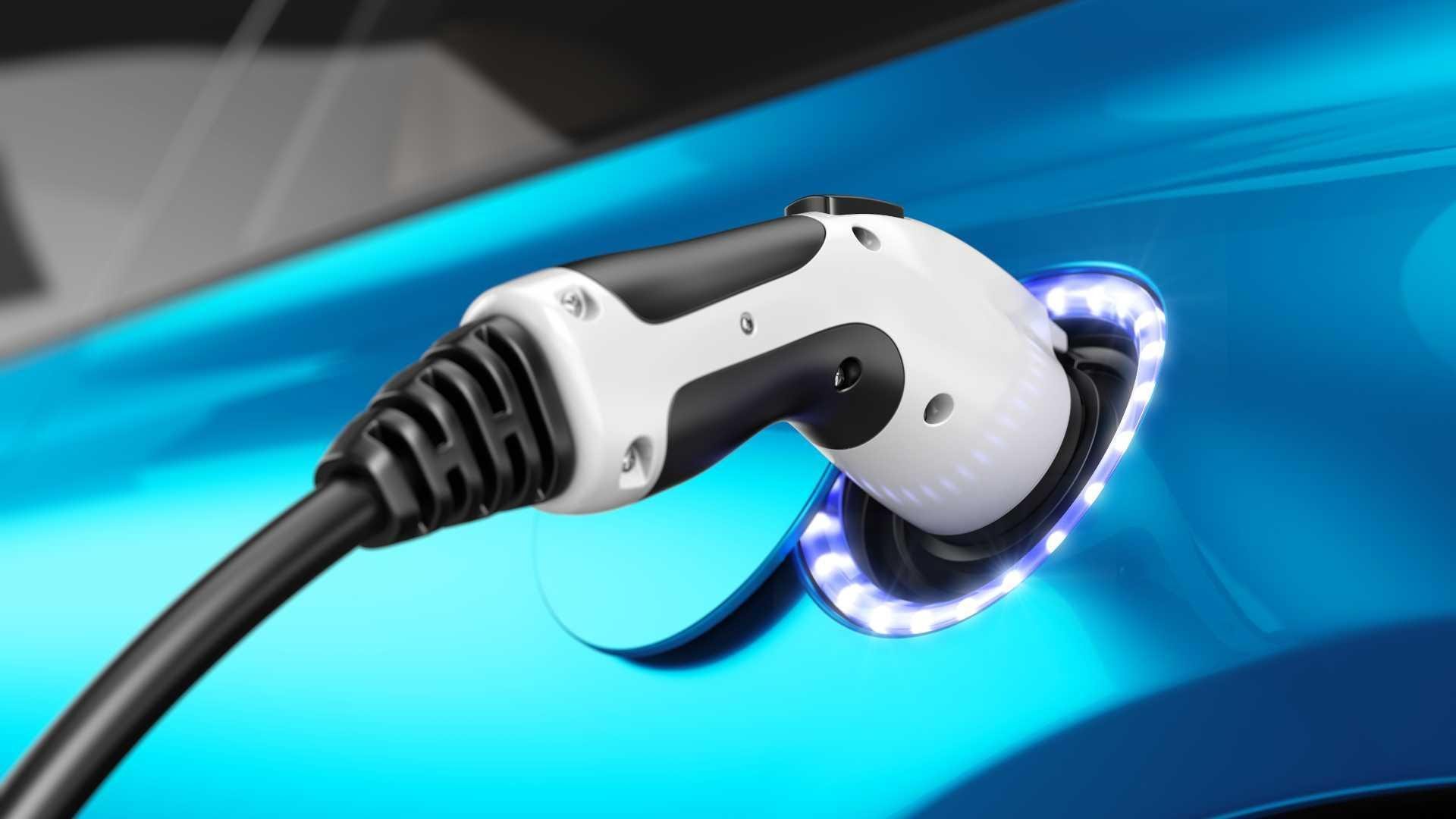
If you are already a happy owner of an electric car or are just thinking about buying one, you are probably worried about the average cost of charging. How much more profitable will it be to power the car from the power grids than to fill it with gasoline or diesel? Or maybe it is more beneficial to take the hybrid version? Let’s look into it.
First, let’s understand the formula used to calculate the cost of charging. It is measured in kilowatt-hours (kWh – the standard measurement of energy. On average, you will use 1,000 watts of electricity in 1 hour when charging from domestic electricity. Next, you need to consider the battery capacity of your car. It is determined by how many kWh of energy it can store. Here’s our formula:
Price per kWh x Battery Capacity = Charging Cost
For example, the Tesla Model S has a 100 kWh battery. So the cost of charging it at 10p/kWh would be £0.10 x 100 = £10.00.
The cost of charging electric cars at public stations
To charge the electric car from a standard outlet, you must always use a specifically designed cable for such manipulation. It can be purchased separately but is usually included in the kit. The cable has a special connector on one side to connect to the battery, and on the other end, there is a plug that fits into a regular outlet. For safety, each cable is equipped with a particular safety module that will help keep it from shorting or overheating.
There are several ways to charge an electric car in the UK on public stations. Some places, such as hotels, parking lots, and shopping centres, offer the opportunity to charge for free. At some locations, charging will cost around £1.50 per hour. Fast chargers will cost even more – about £3 for a 45-minute connection, plus 30p for each kWh of electricity. Some charging stations simply charge 39 pence per kWh for electricity.
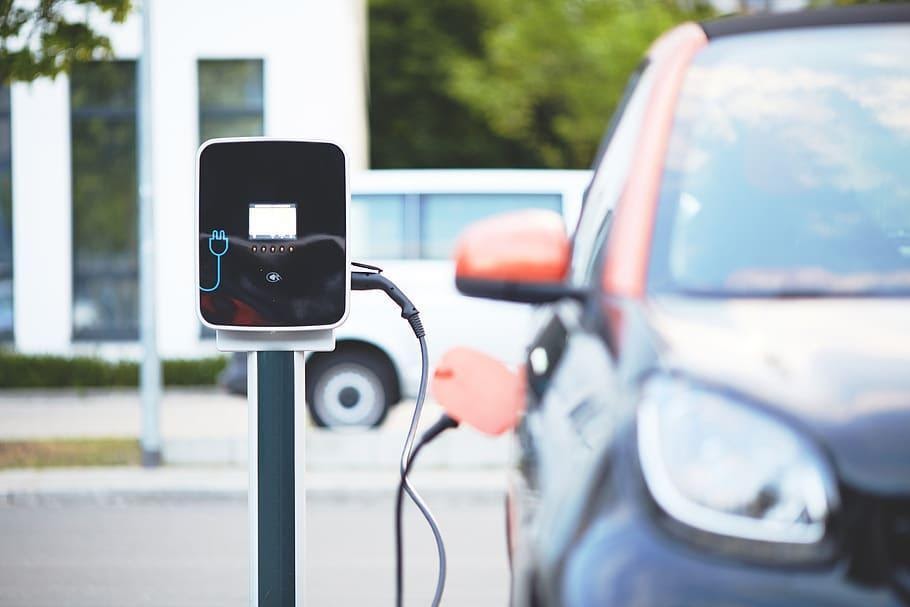
At a special station, the car is usually charged for 5 hours. If it has a reinforced charging unit as a piece of charging equipment, the time is reduced to half an hour. In total, there are now 3,062 fast and ultra-fast charging points in the UK and a total of 10,087 units.
How do you keep electric car charging costs low?
There are many ways to save money on car charging, but the main one is reduced rates. Many energy companies offer lower electricity prices at night when there is less demand. Another thing to consider for savings is the number of off-peak hours available to charge your electric car. If, for example, you own a Tesla Model S with a 100 kW battery, the charging time will be longer. So look out for electricity rates that offer more extended off-peak charging periods.
Electric car charging cards
Some UK charging networks, such as Ecotricity, Polar, ChargeYourCar, GeniePoint, and Shell Recharge, provide special Radio Frequency Identification (RFID) cards for charging. To use the card and public charging points, you must sign up for a membership program.
Find car finance deals with the best rates!
My monthly budget is
The cost of charging an electric car at home
Although there are nuances, charging the electric car can be done at home from a standard 220-volt outlet. The owner of the vehicle will need a cable and a special charger. It is worth noting that charging at home has its disadvantages. The process will take almost three times longer than charging at a particular station.
Most electric car owners prefer to charge their cars at home. If you choose the correct rate, the cost of such charging can be quite low, and it will be included in your electric bill.
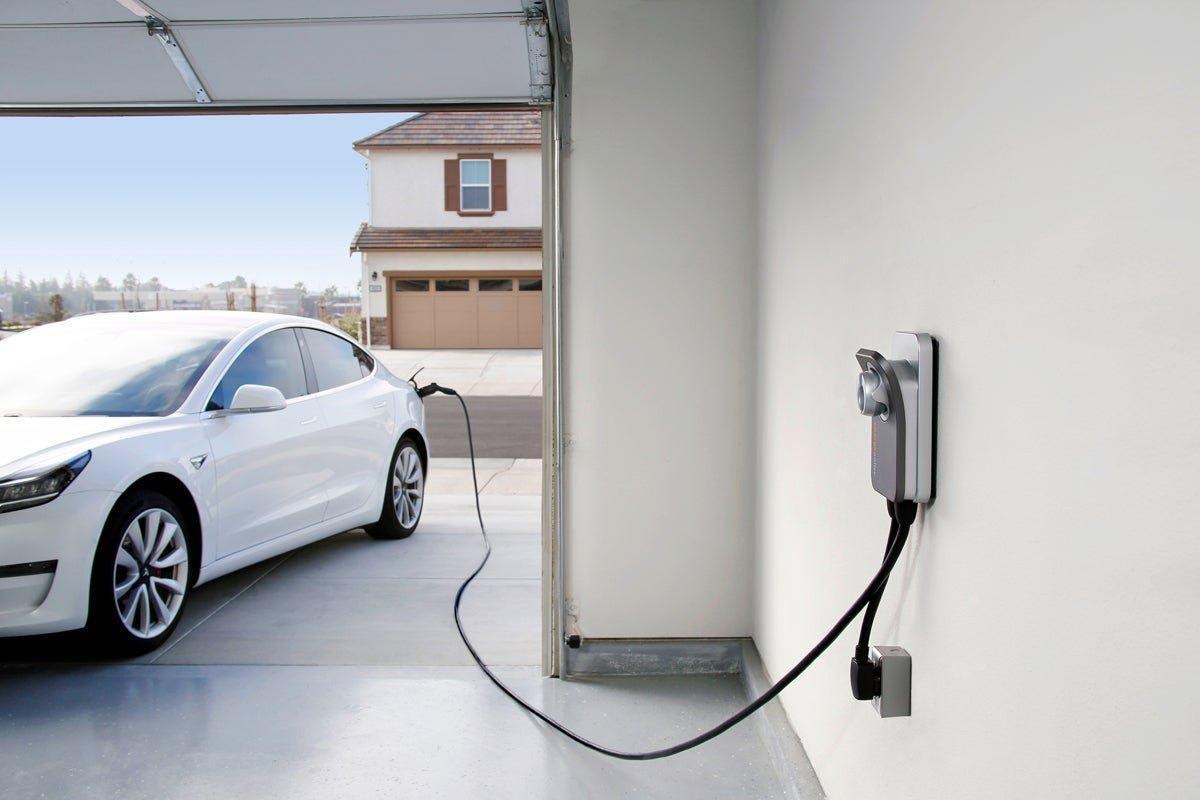
How much will it cost to install a car charging point at home?
The cost of charging your car at home may depend on how much you charge, the type of charger, and how often you use public charge points. It costs around £1,000 to put a car charger in your home. However, there is a way to save money – thanks to an OZEV grant, you can reduce the initial cost by up to £350.
Electricity and energy tariffs
If you plan to charge your car at home, it’s worth looking for a suitable electricity tariff. As we said above, pay attention to off-peak hours and at night when electricity prices are lower due to the reduced load on the grid.
The cost to charge an electric car at rapid chargers
You can find such chargers on public charging stations at expressways and service stations. This is the most expensive way to charge – unless you are lucky enough to find a place where ultra-fast charging is available for free.
On average, speed chargers cost 25 pence per kWh. Based on the battery capacity of your car, you can calculate the cost of a full charge. Most fast charger points operate at a rate chosen by the operator.
The cost to charge an electric car at work
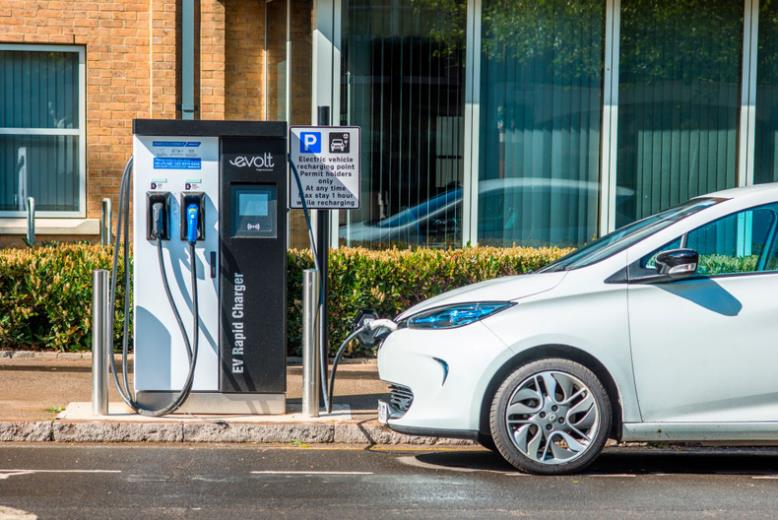
It all depends on your employer: some give free charging to employees, while others set rates. The rates are usually based on charging time. There is also another model – giving free charging for a certain period and charging after that time. In this way, employers want to incentivize employees to free up charging spots for other workers.
Cost of motorway charging
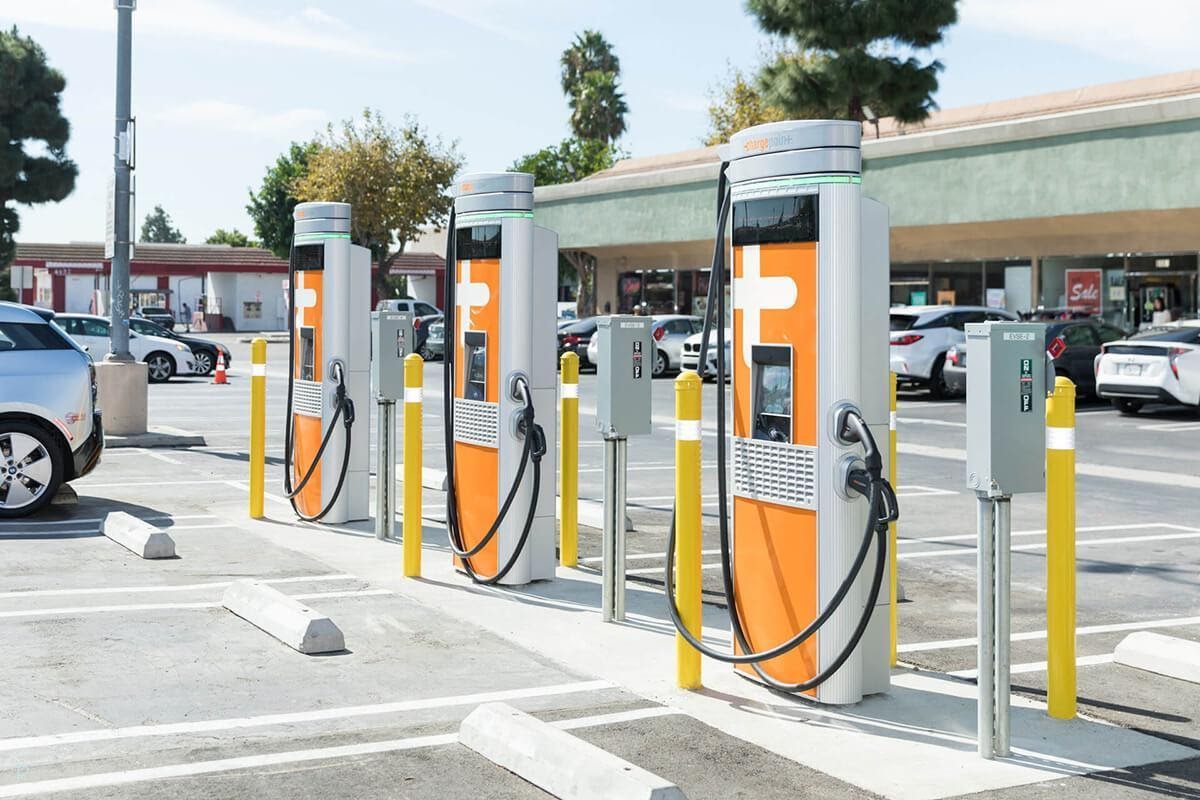
You can find accelerated chargers on the motorway. The average prices of these vary: for example, Pod Point chargers cost 25 pence per kWh. That is, you will spend about 6-7 pounds for half an hour of charging. If you’re a Tesla owner, you’re in luck: the free Tesla Supercharger Network is available to you. Other points are usually charged at the carrier’s rate.
Showing the cheapest electric car to run in the UK
So, now that we’ve sorted out all the factors that affect EV charging costs, let’s look at which electric cars are the cheapest to charge. We used both premium cars and more affordable cars. All of the data are grouped by several metrics. Below you will find a table that allows you to compare 15 models – from the cheapest one to the most expensive one.
| Model | Battery Capacity | Electric Range | Cost to Fully Charge | Cost per 100 Miles |
|---|---|---|---|---|
| Hyundai IONIQ Electric | 40.4 kWh | 155 mi | £5.81 | £3.75 |
| Tesla Model 3 Standard Range Plus | 50 kWh | 190 mi | £7.19 | £3.78 |
| Tesla Model 3 Long Range Dual Motor | 75 kWh | 280 mi | £10.78 | £3.85 |
| Fiat 500e | 42 kWh | 155 mi | £6.04 | £3.89 |
| Hyundai Kona Electric | 67.5 kWh | 245 mi | £9.70 | £3.96 |
| Tesla Model 3 Long Range Performance | 75 kWh | 270 mi | £10.78 | £3.99 |
| Mercedes-Benz EQA | 60 kWh | 215 mi | £8.62 | £4.01 |
| Renault Zoe ZE50 R110 | 54.7 kWh | 195 mi | £7.86 | £4.03 |
| Volkswagen ID.3 Pure | 48 kWh | 170 mi | £6.90 | £4.06 |
| Honda e | 35.5 kWh | 125 mi | £5.10 | £4.08 |
| Renault Twingo ZE | 23 kWh | 80 mi | £3.31 | £4.13 |
| Renault Zoe ZE50 R135 | 54.7 kWh | 190 mi | £7.86 | £4.14 |
| SEAT el-Born | 62 kWh | 215 mi | £8.91 | £4.14 |
| Tesla Model Y Long Range Dual Motor | 75 kWh | 260 mi | £10.78 | £4.15 |
| BMW i4* | 80 kWh | 275 mi | £11.50 | £4.18 |
Which proved least expensive? hybrid, electric, petrol, or diesel?
So, is it worth buying an EV today?
Electric cars are not only an environmentally friendly type of vehicle but also a profitable investment. Electric cars save money on the purchase of gasoline, the price of which is constantly fluctuating. Does it even make sense to charge an electric car at home? Perhaps the battery power consumption is so high that the vehicle will simply bankrupt its owner?
It is safe to say that maintaining an electric car is more profitable than maintaining a hybrid. Thus, the simplicity of design (transmission, battery, motor) ensures easy maintenance. The service interval is every 20-30 thousand km. Also, the maintenance only replaces oil in the gearbox and the filter in the cabin. Wear of the brake pads is much lower due to the peculiarities of technology and the recuperation system. In terms of safety, the electric car also has an advantage: the location of the battery in the lower part provides better stability and controllability of the vehicle.
In general, if you charge your car at home, it’s guaranteed to cost you less than a diesel or hybrid car. But if you use Rapid and Ultra Rapid charging frequently, you run the risk of paying more for charging than for fuel.
For example, the average electric hatchback requires an average of 2,954.8 kWh per 9,000 miles driven. That is, if you pay 33 pence per kWh or more, you’ll pay a total of £964.35 for the year. And that’s more expensive than a similar diesel car. The table below shows how much you pay for electricity and how much you would pay for gasoline.
| Medium car | Average fuel consumption in Which? tests | Cost | Point at which electric becomes more expensive |
|---|---|---|---|
| Electric | 20.38kwh per 100km (2,951.9kWh used) | n/a | n/a |
| Full hybrid (petrol) | 55.67mpg | £00 950, | 33p per kWh |
| Diesel | 55.83mpg | £00 964, | 1 33p per kWh |
| Petrol | 41.37mpg | £1,278.48 44p per kWh | 44p per kWh |
Data provided by the which.co.uk. You can see the whole table by going through the link.
With the increase in electric cars every year, the infrastructure is also actively developing. It is not too difficult to find an electric filling station. The increase in the number of electric cars and, as a consequence, the growing demand for their fueling, maintenance, and other services, makes it possible to actively develop the electric car service sector, improve and study their maintenance technologies, and expand the range of spare parts. All this will also have a positive effect on reducing the cost of maintaining electric cars.
Table of Contents








